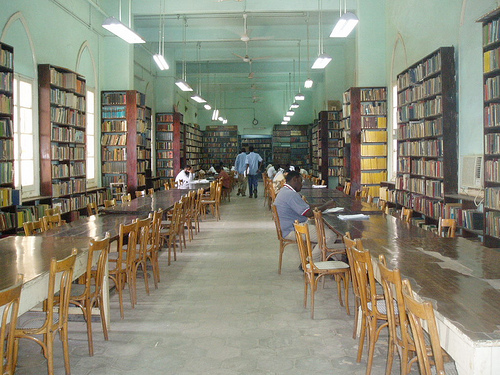Five out of 30 Mozambican students enrolled at the African International University in Sudan with scholarships have returned to their home country. In April 2012, they signed and shared a complaint [pt] on social media regarding the social and financial difficulties they were facing in Sudan.
In the letter, published [pt] on April 27 on the Facebook profile ‘Moçambicanos no Sudão’ (Mozambicans in Sudan), the students – sent abroad by Muslim charity organizations – requested their government's intervention for the resolution of a situation perceived as “extremely chaotic”:
falta de fundos para pagamento de vistos de estadia, propinas, material escolar, material de higiene individual, seguro de saúde, e não deixando de lado a falta da variação alimentar, visto que os estudantes têm único tipo de alimentação de um de Janeiro a trinta e um de Dezembro de cada ano, Arroz e um caril muito esquisito (batata doce e abóbora).
The students's complaint generated a stir [pt] in Mozambique's national press and social media, which made the University urge the students to write a new document [pt], denying their previous statements.
The students, who refused to give into Sudanese pressure, were expelled from the University and sent back to Mozambique on June 29.
After seven hours at Maputo's International Airport with nowhere to go, the students were welcomed and lodged by the Youth Parliament (PJ), a non-governmental organization which became their most visible supporting figure [pt]. During a press conference at the Youth Parliament headquarters, the students spoke about the conditions they had faced and a possible connection to Al-Qaeda in Sudan.

Students kicked out of Sudan. Photo by Víctor Bulande, used with permission.
Social media was full of criticism regarding the government of Mozambique and its distant attitude to the issue. Minister of Education Zeferino Martins [pt] stated the government “has no responsibility towards scholarship holders studying in Sudan, since those young Mozambican citizens went abroad financed by Muslim organizations to pursue religious education.”
Students go to Sudan intermediated by individuals linked to Muslim religious organizations based in Mozambique, mainly in the capital Maputo. According [pt] to the Ministry of Education, the students in question received symbolic support from the Sautul Islam organization.
Despite the minister's statement, the ‘Liga das ONGs de Moçambique’ (League of NGOs of Mozambique) published [pt] a note saying that the government should have taken a stand:
Admitindo que, eventualmente, os estudantes sejam vítimas das medidas de contenção de custos, seria importante [o Governo] ter um diálogo com eles e ajudá-los no desenho de cenários que possam mitigar o sofrimento dos estudantes.
And adds:
esta situação pode chamar a atenção para mudança ou revisão das políticas públicas com relação a atribuição das bolsas e as respectivas condições dai subjacentes.
Similar cases have occured before, as pointed out anonimously by a Mozambican student in Vietnam in a comment to the article on @Verdade Newspaper. He deplores the “situation of students in Sudan, Algeria and Russia”.
Carlos Cantinho comments [pt] in another article:
os bolseiros na Argélia exigiram o que lhes prometeram (recambiaram-nos para casa) estes no Sudão que decerto estará entre os mais pobres dos pobres,e dizem que não tem a ver com o ministério da educação mas sim com as tais organizações islamicas (madrassas). Nos países civilizados quando se fazem estes protocolos de cooperação no domínio da educação (cumpre-se). Pelos vistos neste caso ninguém se responsabiliza.







